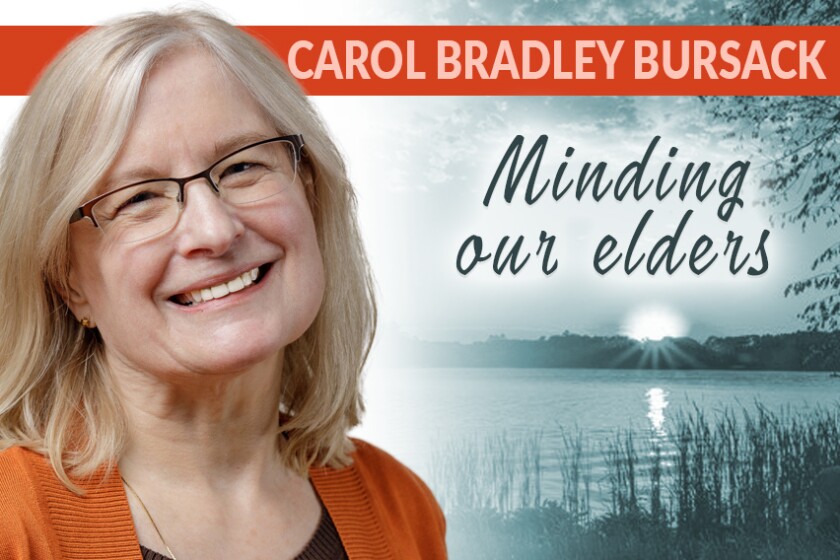
Dear Carol: I’m 84 years old and as a past caregiver, I appreciate how you balance the legitimate concerns of caregivers with respect and compassion for the aging process. I don’t claim to be as cognitively on the ball as 40 years ago, but I still manage my finances very well and have no real health concerns. I’ve set up Powers of Attorney for finances and health, have an advanced directive and created a will, so I’m not in denial.
I’m fortunate that my family agrees with my self-assessment. While I think (and hope) that I’ll notice if I’m slipping, my adult children and I would appreciate some reliable resources on the difference between slowing down in processing speed and recall and actual memory and thinking problems. Thanks so much! – SR Dear SR: I appreciate your kind words about my balancing caregiver concerns with respecting the older adult’s autonomy.

Life should be about respect, nuance and seeking to understand others, so that is my aim. You sound like you’re doing wonderfully well both cognitively and physically, and it’s refreshing to hear that you and your family are being realistic about aging risks while respecting your autonomy. Most older adults will have occasional recall challenges, and they might take longer to learn something completely new.
However, many can hold their own or even excel in tasks that take semantic memory which depends on background and historical knowledge. The point is that normal cognitive aging doesn’t involve neurodegeneration or significant damage to the brain’s neurons. It’s a natural process due to brain changes that happen with aging bodies, but these changes shouldn’t prevent most older adults from making decisions about their own lives.
Some businesses are efficiently run by older adults with deep historical knowledge and older adults make up an enormous portion of volunteers. We should remember that aging is a privilege, and not all changes are bad. While being prepared for the future is important, the deciding factor of when families should step in shouldn’t be age.
Rather it's about a person’s capacity to make safe and logical decisions. Education about normal aging can help family members avoid inadvertently creating resistance by pointing out every word slip when they might have had grateful cooperation if assistance is needed. Conversely, if older adults live in denial about eventually needing help with finances and health care, they are setting the stage for deserved aggressive action from their adult children.
Both scenarios are undesirable and cause misery and broken relationships. Thank you for your question, SR. I’ll continue to address capacity in addition to guidance on how families can use knowledge and compassion to address worrisome changes in their aging family members.
These resources should help you get started: Intrinsic Capacity in Older Adults: Recent Advances ( https://pmc.ncbi.nlm.
nih.gov/articles/PMC8947834 ) Normal Aging vs. Dementia ( https://memory.
ucsf.edu/symptoms/healthy-aginghttps://memory.ucsf.
edu/symptoms/healthy-aging ) How to Know if Your Aging Parent Can Still Make Decisions ( https://www.youtube.com/watch?v=O6M5Sqpr-0c ) FAQs On “Incompetence” & Losing Decision Capacity ( https://betterhealthwhileaging.
net/podcast/decisional-capacity-incompetence-faqs ) How to plan to become a caregiver for aging parents ( https://www.inforum.com/health/how-to-plan-to-become-caregiver-for-aging-parents ).















